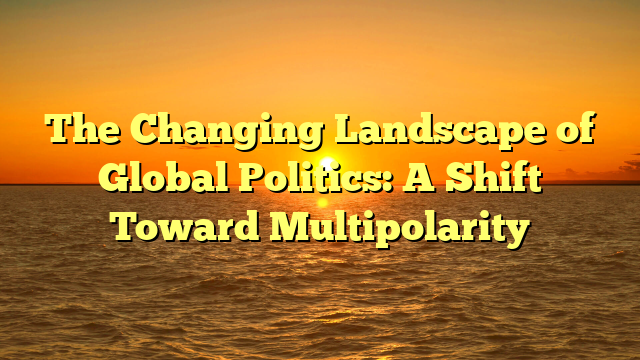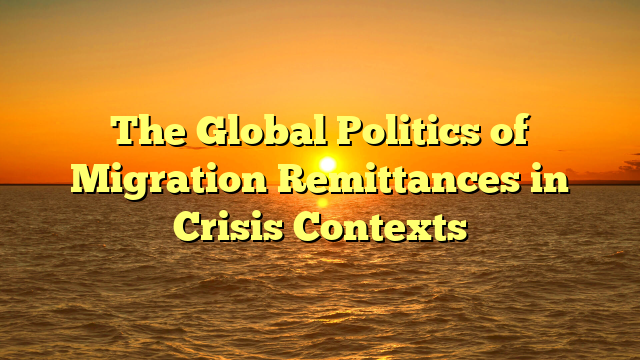In recent decades, the global political landscape has undergone significant transformations. Once dominated by a bipolar structure during the Cold War era—with the United States and the Soviet Union vying for influence—the world moved into a unipolar phase after the fall of the USSR, with the U.S. standing as the dominant global power. However, in the 21st century, we are witnessing the emergence of a multipolar world where power is more distributed among several nations.
Rise of Regional Powers
Countries like China, India, Brazil, and Russia have grown in economic and political strength, challenging the traditional Western dominance. China’s Belt and Road Initiative (BRI), for instance, is a clear strategy to expand its influence across Asia, Africa, and Europe through infrastructure development and investment. Meanwhile, India is asserting itself not only as a regional power in South Asia but also as a major player in global tech and defense sectors.
This shift is not just about economic clout but also political influence. These nations are increasingly active in international institutions like the United Nations, G20, and BRICS, pushing for reforms that reflect the new global order. Their influence signals a world where global governance is no longer shaped exclusively by the West.
Western Democracies Under Pressure
At the same time, traditional Western democracies face internal and external challenges. Populist movements have gained ground in Europe and North America, driven by public dissatisfaction with economic inequality, immigration, and a perceived disconnect between political elites and ordinary citizens. In the United States, political polarization has reached levels not seen in decades, affecting everything from judicial appointments to public trust in elections.
The European Union also grapples with political fragmentation. The rise of right-wing parties in countries like Hungary, Italy, and France has challenged the EU’s unity on issues like migration, sovereignty, and economic policy. bigwin138 , the United Kingdom’s exit from the EU, was a dramatic manifestation of this tension.
The Role of Technology and Social Media
Technology has become a double-edged sword in politics. On one hand, social media has empowered grassroots movements and increased political awareness. On the other hand, it has also enabled the rapid spread of misinformation, foreign interference in elections, and deepening ideological divides.
Governments now face the complex task of balancing freedom of expression with the need to combat harmful content online. Moreover, cybersecurity and data privacy have become central political issues, with countries enacting strict laws and investing heavily in digital infrastructure.
Geopolitical Conflicts and Alliances
Ongoing conflicts in Ukraine, the Middle East, and the South China Sea continue to test international cooperation and military alliances. The war in Ukraine has not only led to a humanitarian crisis but also a realignment of security policies in Europe. NATO has gained renewed relevance, while neutral countries like Sweden and Finland have sought membership.
Meanwhile, tensions between the U.S. and China over Taiwan, trade, and technology are shaping a new era of geopolitical rivalry. Unlike the Cold War, however, this new competition is deeply economic and technological in nature, with global supply chains and digital infrastructure playing critical roles.
Conclusion
Politics today is more complex and interconnected than ever before. The rise of multipolarity, domestic challenges to democracy, the impact of technology, and shifting alliances all point to a world in flux. While these changes pose risks of instability and conflict, they also offer opportunities for cooperation, innovation, and reform.
As citizens, understanding these dynamics is essential—not only to grasp the headlines but to engage meaningfully in shaping the political future. Whether through voting, activism, or informed discussion, public participation remains the cornerstone of resilient and responsive governance.
The Changing Landscape of Global Politics: A Shift Toward Multipolarity



